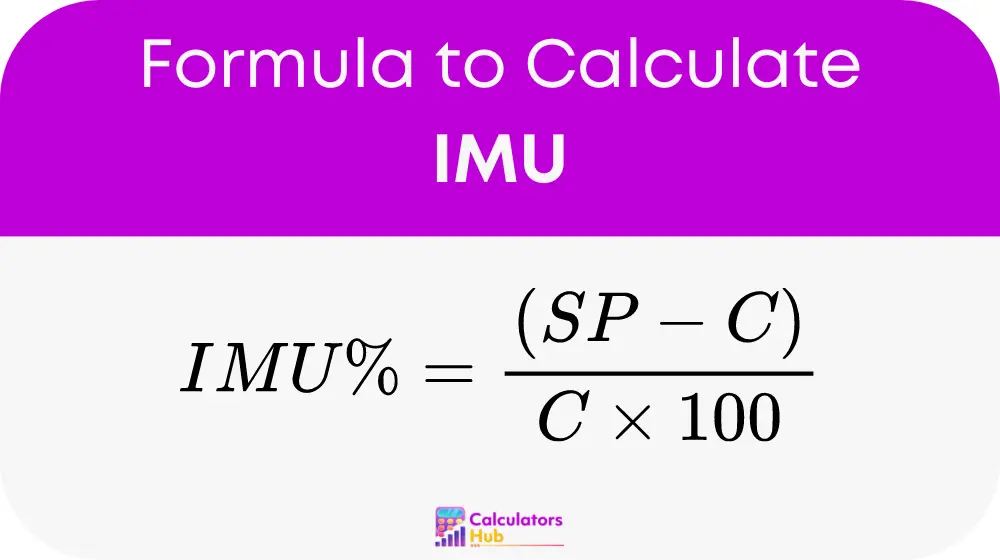The Initial Markup (IMU) is a percentage that shows how much more a product is being sold for compared to its cost price. It is crucial in retail and other sectors that rely heavily on product sales. The IMU helps in determining the selling price of a product given the cost price and the desired profit margin.
Purpose and Benefits
The IMU Calculator simplifies the pricing strategy process. By inputting the cost price (C) and the desired selling price (SP), businesses can instantly calculate the necessary markup. This tool is invaluable for:
- Ensuring prices cover costs and desired profits
- Quick recalculations in response to market changes
- Strategic pricing to improve competitiveness and profitability
Formula of IMU Calculator
Explanation of the Formula
The formula for calculating the Initial Markup percentage (IMU%) is straightforward:

where:
- SP is the Selling Price of the product.
- C is the Cost Price of the product.
Detailed Breakdown
To use this formula, follow these steps:
- Subtract the cost price from the selling price.
- Divide the result by the cost price.
- Multiply by 100 to get the percentage.
This calculation will provide the markup percentage needed to reach the desired selling price from the given cost price.
Useful Table for Quick Reference
Common Price Points
| Cost Price (C) | Desired Markup (IMU%) | Selling Price (SP) |
|---|---|---|
| $10 | 50% | $15 |
| $20 | 75% | $35 |
| $30 | 100% | $60 |
Conversion Table
This table helps quickly convert between cost price and selling price based on common markup percentages.
| Markup % | Multiplier (to Cost Price) |
|---|---|
| 50% | 1.5 |
| 75% | 1.75 |
| 100% | 2.0 |
Example of IMU Calculator
Scenario Description
Consider a scenario where a retailer needs to determine the selling price of a product that costs $30 and wants a 100% markup.
Calculation Process
Using the IMU formula:
IMU (%) = (60 – 30) / 30 * 100 = 100%
This calculation shows that the selling price of $60 achieves a 100% markup on the $30 cost price. This practical application helps ensure the retailer meets their financial goals while remaining competitive in the market.
Most Common FAQs
Typical IMU percentages vary by industry but generally aim to balance competitiveness with profitability.
Varying the IMU can significantly affect a business’s bottom line by determining how much gross profit is made on each item sold.
IMU can indeed be negative, which typically happens when the selling price is set below the cost price, often to clear out inventory or meet other strategic goals.